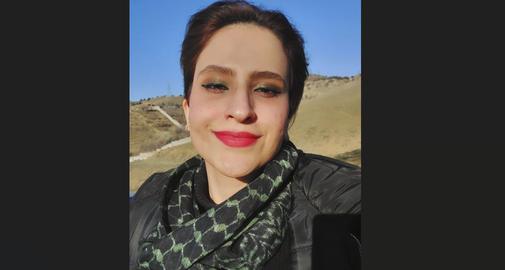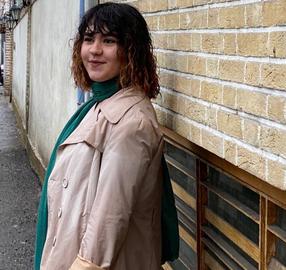“The devil is in details:” This is an apt description of the mandatory hijab laws of the Islamic Republic, laws that are so remote from modern life, so contrary to human rights and to Islamic Republic’s own constitution that it is difficult to believe that they truly exist. And these laws are enforced by the police, the paramilitary Basij force and the judiciary.
The Islamic Republic is the only government and Iran is the only country in the world where hijab is legally mandatory. The government insists on enforcing mandatory hijab even though it is not a primary Sharia law, and this insistence has plunged the Islamic Republic into an all-encompassing crisis.
Iranian women are now challenging these draconian, inhumane laws by nationwide protests and acts of civil disobedience.
Forced hijab in Iran is a symbol of all restrictions and obligations that were created by the Islamic Republic more than 40 years ago, but it became law seven years after the 1979 revolution. Unlike many officials such as President Ebrahim Raisi who have said that the headscarf is “optional,” Supreme Leader Ali Khamenei has insisted more and more that it is compulsory and recently said opposition to it was “forbidden.”
The Islamic Republic has criminalized violation of forced hijab and can find violators guilty of apostasy, which is punishable by death.
From Warning to Prison Terms
Parliament passed the initial mandatory hijab law in March 1987, less than three years before the death of the Islamic Republic’s founding father, Ayatollah Khomeini. According to Article 4 of this legislation, “Persons who appear in public with clothing or makeup that violate Sharia or promote corruption or damage public chastity will be arrested, will be tried on a priority basis by a proper court and, depending on the case, will be sentenced to one of the punishments stated in Article 2.”
The punishments envisaged in Article 2 ranged from warning, “guidance” and reprimand to up to 40 lashes and a fine of up to 20,000 tomans. But 10 years later, in 1996, a law introduced prison sentences for violating hijab rules. The note to Article 638 of the Islamic Penal Code states: “Women who appear in public without a proper hijab should be imprisoned from 10 days to two months or pay a fine of 5,000 to 50,000 tomans.”
The law leaves the definition of Sharia hijab vague, but the constitution of the Islamic Republic stipulates that in cases where ambiguities exist, written Islamic texts and fatwas issued by religious authorities must be consulted.
A number of Shia religious authorities and “sources of emulation” have ruled that hijab is not
mandatory. One was Ayatollah Hossein Ali Montazeri, the once heir apparent to Khomeini. However, clerics who follow the Jafari school of jurisprudence, the basis of jurisprudence in the Islamic Republic, have ruled that a woman must cover all her body except her face and the palms of her hands.
No Privacy in Cars and Parties
According to the laws of the Islamic Republic, acts violating “chastity” in public spaces is an offense that can be prosecuted. This extends to private cars, meaning that a woman who removes her scarf in her vehicle breaks the law. Women have been detained at private gatherings and parties because, under the laws, a party is considered a “public space” due to the presence of persons who are “strangers” (namahram). Therefore, women must wear hijab in parties where men are present.
According to a 1992 law, Basijis are judiciary bailiffs, as are members of National Police. If they or two eyewitnesses report a violation of forced hijab rules, even in a private party, these bailiffs have the duty to arrest the accused and send their case to court. The same applies to the violators of the 1987 law on selling “clothing that violates Sharia.”
Violators Can End Up in Death Row
According to Article 607 of the Islamic Penal Code, “Any form of attack or resistance carried out
knowingly against state agents while they are performing their duties shall be regarded as defiance.” Violators of forced hijab who resist arrest can be tried at penal courts or Revolutionary Courts and receive heavy sentences.
According to Article 5 of the law on the “Establishment of General and Revolutionary Courts,” crimes against national security or defined as “corruption on Earth” are within the jurisdiction of the Revolutionary Courts.
If the prosecutor considers that flouting hijab rules violate Islamic values, the accused can be charged with “corruption on Earth,” and the case can be sent to a Revolutionary Court. Such courts have routinely issued death sentences for defendants convicted of “corruption on Earth” and these verdicts have been upheld by the Supreme Court.
And if the court decides that a defendant charged with violating forced hijab is guilty of criminal intent such as encouraging others to violate hijab rules or “propaganda against the regime,” and if the judge concludes that the violation was meant to deny the hijab requirement under Sharia laws, then he can define the offenses as “apostasy,” which also carries a death sentence.
Those convicted of violating hijab rules have no recourse to appeal, which goes against the constitution of the Islamic Republic, except when a death sentence was handed down.
Mandatory hijab laws apply to all individuals within the land, sea and aerial borders of the Islamic Republic, regardless of nationality and religion.
visit the accountability section
In this section of Iran Wire, you can contact the officials and launch your campaign for various problems


























comments
I'd like to input my neutral answer for volatile times that finding a middle ground on the Hijab would be best during Draconian times since with such extremism comes trafficking/raping/predators/dark mind manipulation tactics as well as propaganda exploiting sexuality which trains those susceptible to seek after what has been programed. One creates the other and it feels counterintuitive at moments. If anything, the hijab provides protection from such predators and takes on a new meaning during high-trafficking... and/or an alternative that can be thought of outside of the Hijab that doesn't attract attention but still allows for personal freedom within the wardrobe. If a woman wants the attention of those whom sexually exploit them then the consequences lie with their decisions. This is standard behavior. If the behavior is the issue, then it is clear that psychotherapy is required to help correct this train of thinking. ... read more